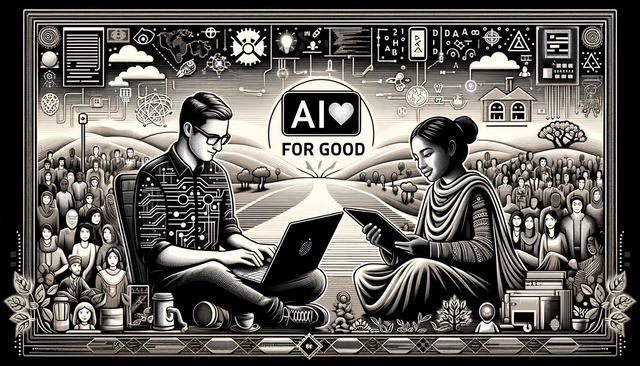
Responsible AI in International Development
In recent years, artificial intelligence (AI) has become a transformative force, offering solutions to complex problems and driving innovation. However, with its increasing integration into international development, the concept of “responsible AI” has emerged as a vital consideration.
Responsible AI refers to the ethical design, deployment, and use of AI technologies. It encompasses principles such as fairness, accountability, transparency, and inclusivity, ensuring that AI systems do not perpetuate biases, harm individuals or communities, or operate without oversight. As AI technologies become more pervasive, adhering to these principles is essential to mitigate risks and maximize benefits.
In the context of international development, responsible AI matters for several reasons:
1. Equity and Fairness
AI systems must be designed to serve diverse populations without reinforcing existing inequalities. In international development, this means creating solutions that are accessible and beneficial to marginalized and underserved communities. For example, AI-driven agricultural tools should be designed with the needs of smallholder farmers in mind, not just large-scale agribusinesses.
2. Accountability and Governance
Implementing AI in development projects requires robust governance frameworks to ensure accountability. This involves setting up mechanisms for monitoring and evaluating the impact of AI systems, as well as establishing clear lines of responsibility for addressing any negative outcomes. Effective governance helps prevent misuse and ensures that AI applications align with development goals.
3. Transparency and Trust
Transparency in AI systems builds trust among stakeholders, including local communities, governments, and international organizations. Transparent AI systems provide clear explanations of how decisions are made, which is crucial for ensuring that these decisions are understood and accepted by those affected. Trust is fundamental for the successful adoption and sustainability of AI-driven initiatives in development.
4. Ethics and Human Rights
AI systems must be aligned with ethical standards that respect human rights and dignity. This includes safeguarding data privacy and preventing the use of AI for surveillance or exploitation. Ethical AI practices are essential for protecting vulnerable populations and ensuring that technological advancements contribute positively to human development.
Responsible AI Examples
Responsible AI is critical in international development to ensure that technological advancements lead to inclusive and equitable growth. By prioritizing fairness, accountability, transparency, and ethical considerations, we can harness the potential of AI to address global challenges and foster sustainable development.
Here are examples of responsible AI in international development:









